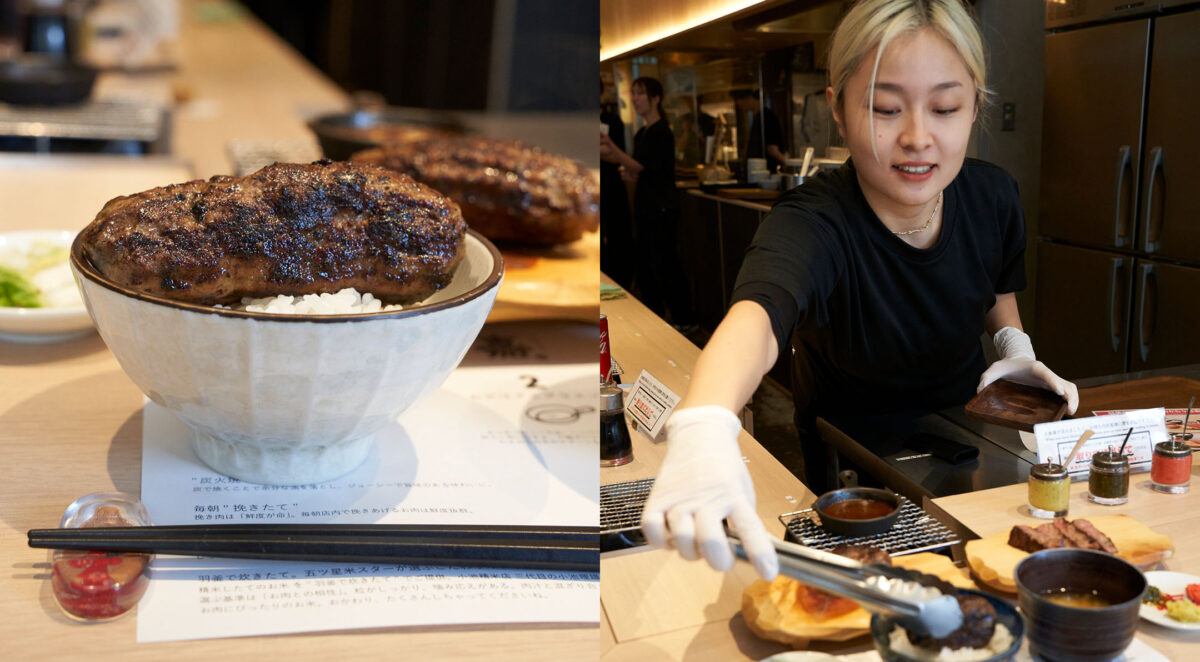While he is acclaimed as “the world’s best Indian chef,” to call Gaggan Anand’s cuisine Indian would be missing the mark.
“My cuisine is me. It is not Indian at all,” says Gaggan of Asia’s number one restaurant Gaggan in Bangkok, Thailand. “It does not have Indian influences or recipes. It is [about] me, my taste, my taste buds, and my memories of growing up in India. To Indians, it is Indian; to non-Indians, it is non-Indian.”
“In my restaurant, it is a journey. My menu is experimental. It’s about having fun with food while keeping the integrity of the cuisine.” Anand maintains he doesn’t set boundaries when it comes to food; in cooking, there are no lines to be crossed.
There’s a method to his madness and for him, even the creative process has a journey. It starts with his tasting and then combining flavors in his mind. The resulting recipe is scribbled on paper before he and his team try it out in the kitchen.
For a restaurant that changes its menu every three months, it can take Gaggan as fast as 10 minutes or as long as two years to deem a dish perfect. There are a number of reasons for the multiple menu changes. “It depends on the season, my travels and inspirations. If I like something in the Philippines, for example, I will bring it there.”
“If my restaurant did not evolve, then I will not be in vogue. I think of food as fashion. If an artist just makes one painting and lives on that legacy alone, he is not an artist,” says Gaggan Anand.
As with everything, there is a need to evolve. “Look at technology: Maybe next time we won’t be using the same apps or gadgets. That is the same with food; it moves on.” The world is moving faster, he says, and so he keeps up with the change.
This is the reason why those who are lucky enough to score reservations in his restaurant in time for a Bangkok trip won’t find the same items on the menu when they return in a few months’ time. “If my restaurant did not evolve, then I will not be in vogue. I think of food as fashion. If an artist just makes one painting and lives on that legacy alone, he is not an artist. I need to be creative, to evolve and express what I want to do with food.”
Gaggan did not start out wanting to be an award-winning destination restaurant, and the way he speaks about the recognition he gets shows how he is still reeling from the accolades—and quite unprepared for it. “I do not even have a PR team, and it takes us up to 10 days to respond to an email. We are the most unprofessional people; I don’t even have a business card,” he admits.
“I represent modern cuisine, but in the end, though, whatever modern dishes we do, whatever modern cuisine we create, whatever fun you have, the food has to be good. That is what’s most important.”
But the local market has been supportive from opening day. “I was lucky to be full on the first day, the first month.” In fact, the difference between Gaggan’s first year and today is the longer waiting list that has gone from one week to now four to five months.
Success has not changed his restaurant, he says. The people going there may have changed, but not how he runs things in the kitchen and beyond. Gaggan still has its original team with the same chefs. “Most of them cannot speak English, but we cannot throw them out because the restaurant has become popular. We have not changed; it is the people’s perception that has changed.”
He has a word or two about the world of cookery: “I represent modern cuisine, but in the end, though, whatever modern dishes we do, whatever modern cuisine we create, whatever fun you have, the food has to be good. That is what’s most important.
“There are restaurants who have to be protective of their cuisine. Then, there are those who have to come along and destroy them. Just as there are heroes and champions, there are also devils and villains. I am the villain. I destroy the cuisine. I change my menu often while there are restaurants that will offer the same things for the next 30 years—and they will still be making more money than us!” he concludes with a laugh.
Originally published in F&B Report Vol. 13 Issue 1














































